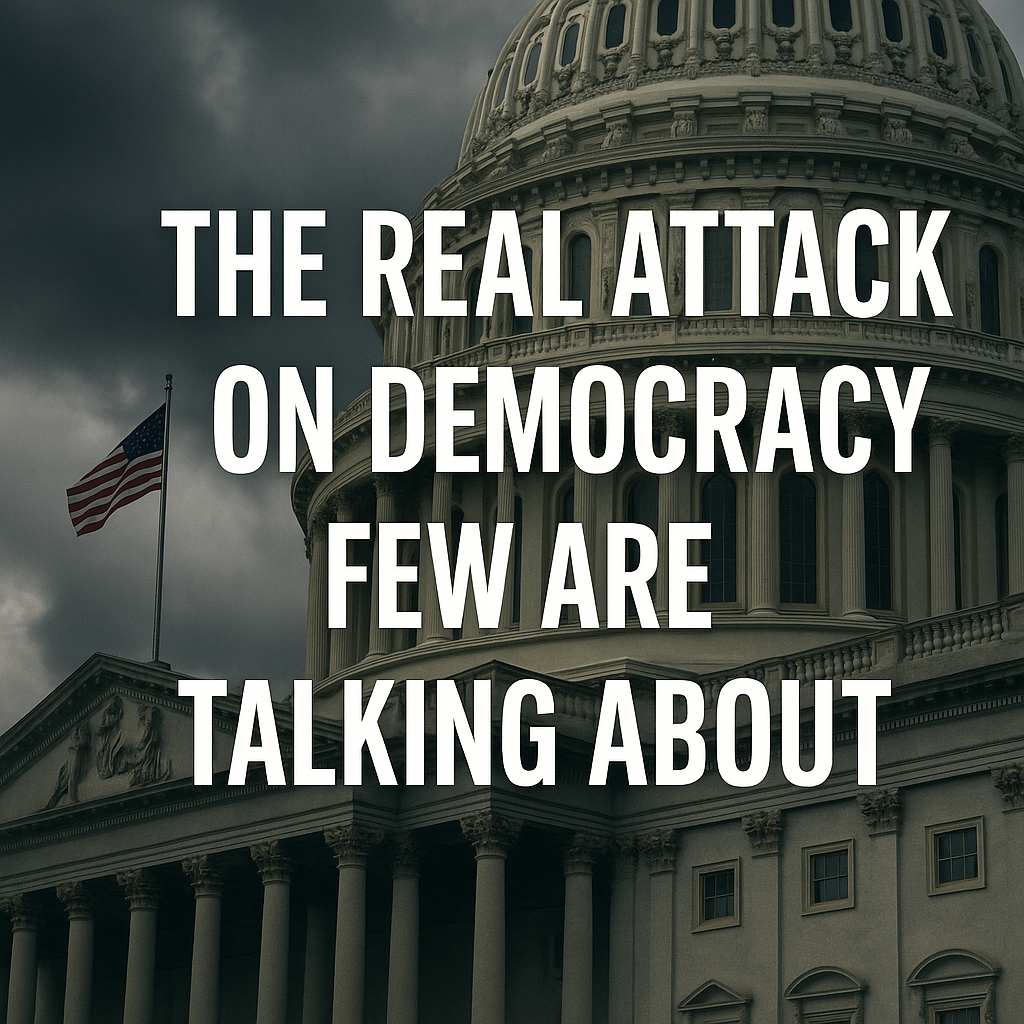by Langston Price
Most Americans see the chaos in Washington and call it a partisan fight. But that misses the bigger danger. The real attack on democracy isn’t just the shouting in Congress—it’s the creeping strategy that’s now spreading from the nation’s capital to statehouses across America. And if we don’t recognize it, we may lose our most basic rights without a single shot fired.
From Washington to the States
What’s happening in DC is not random dysfunction. It is a deliberate, Trump-inspired playbook: weaken institutions, sow distrust, and shift power away from voters. That playbook is now being copied by red-state leaders targeting their own Democratic cities.
The goal is simple—strip local governments of control, override the will of urban voters, and re-engineer power to protect partisan control. This is not healthy federalism. It is the dismantling of democracy in plain sight.
The DC Distraction
The spectacle in Washington—government takeover of the police, calling crime out of control during a 30 year low, endless investigations—isn’t just political theater. It’s a smokescreen. While Americans focus on the noise, state leaders quietly pass laws to seize local control over police, courts, schools, and even election boards.
This is a strategy built on the same foundation as January 6: the belief that if voters choose a different direction, their choice can simply be nullified.
Red States vs. Blue Cities
Nowhere is this clearer than in major Democratic cities trapped in red states. From Jackson, Mississippi, to Houston, Texas, and yes—New Orleans—state governments are reaching in and taking control of core functions. They appoint judges instead of letting residents elect them. They take over local police forces without community consent. And they limit city budgets to starve services.
In Louisiana, the state’s Republican leadership has already shown a willingness to override New Orleans’ elected officials on issues from public safety to control of the trash contracts. These actions are part of a larger national pattern.

Why It Matters
Urban centers are the economic engines of their states. They generate the majority of tax revenue, drive culture, and fuel job growth. Yet they are being punished for voting differently. This is not about “crime” or “efficiency.” It’s about power—and about sending a message that votes in the wrong ZIP code don’t matter.
When voters see that their voice has no impact on local governance, faith in democracy dies. And once it dies locally, it will be far easier to kill it nationally.
The Trump Template
Donald Trump didn’t invent this strategy, but he perfected it. Challenge election results you don’t like. Flood the public square with lies until the truth drowns. Replace elected oversight with partisan loyalists. Now, governors and legislatures in red states are using the same tactics against cities.
This is the dangerous link between DC’s breakdown and local takeovers. Both are powered by the same idea: democracy is conditional, and the conditions are set by those already in power.
Saving Democracy Means Defending Cities
We can’t save democracy by only looking to Washington. We must defend it in New Orleans, Atlanta, Memphis, and every city where state leaders are erasing local control. The fight for voting rights and representative government doesn’t just happen at the ballot box—it happens in school board meetings, city council chambers, and state legislatures.
If we let states strip cities of their rights, the road back to real democracy will be long and steep.
We welcome our newest staff writer – Langston Price.


Kudos to Messrs. Price and Thomas for highlighting this long-running, but still too often ignored threat. The problem is manifold, from the clear abrogation of local “democracy,” to the local dependence on state policymakers made manifest by the costs of civilization (read “cities”) and the regressive and archaic tax structures local governments must almost always use to meet these costs, to the common red-state neglect of important federal programs (e.g., Medicaid) that require state government “matching” funds. As food for thought, and, in some respects also as a useful handbook for prospective reform , see Richard Schragger, City Power: Urban Governance in a Global Age (New York: Oxford University Press, 2016). As Rich makes clear, this problem is rooted in twin deficits, of democracy and power, and is marked as well by what Langston Hughes called “the lies of color that keep the rich enthroned.” (Open Letter to the South, 1932)